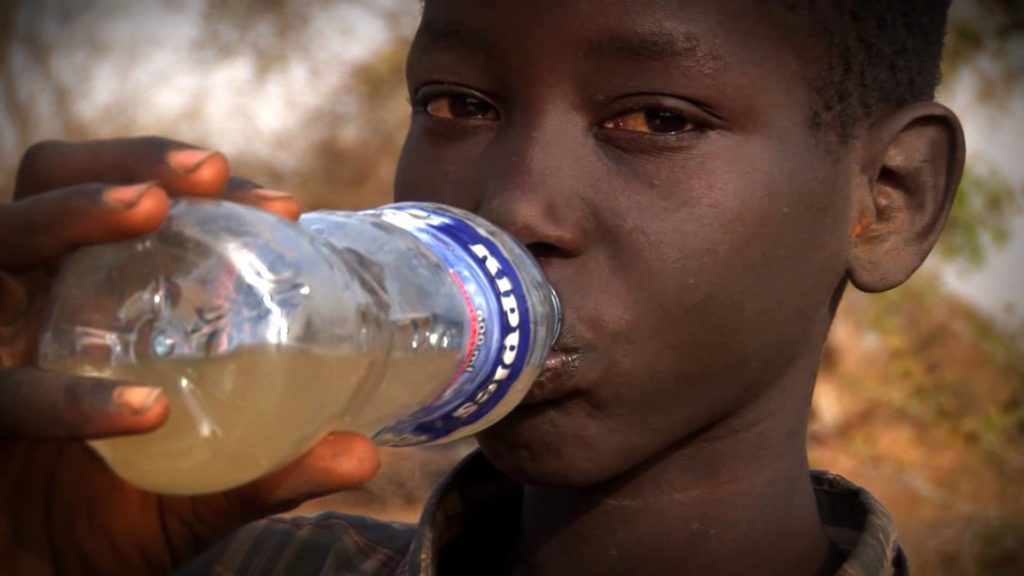Director, Health of Mother Earth Foundation (HOMEF), Nnimmo Bassey, speaking on Tuesday, August 6, 2019 at the opening of the Oilwatch Africa Conference in Port Harcourt, River State, laments the occurrence of extreme oil pollution in Nigeria and South Sudan that results in denial of potable water and fishing grounds. He describes these as consequences of fossil fuel extraction, saying that they are also warning signals to countries stepping into the business

As humans we tend to overrate our capacity to overcome difficulties. That tendency has made many to ignore the dire signs that the planet is hurtling towards the precipice as climate chaos kicks in and intensifies. One sign that we are willfully blind to the looming catastrophe is our insistence that the fossil fuel civilisation is both the inevitable present and future for humankind.
The notion that fossil fuels will remain the fuel of the future has been sold by speculators and by governments dependent on extractivist economies. Thus, because of petrodollars, policy makers are ready to ignore the scientific fact that the burning of fossil fuels is literally setting the planet on fire.
Fossil fuels have been the fuels of rabid capitalism, riding roughshod over people and the planet. As the petroleum age draws to a close, the fossil fuel companies insist on searching for more reserves and digging for more crude oil, coal and gas. If reserve figures rise and shareholders are happy, it doesn’t appear to matter who or what is crushed on the way. We have seen wars, and diverse conflicts rising from the insatiable greed of the players in the messy petro-military complex.
It is at a time like this that more fossil fuel reserves have been found in Africa. Algeria, Angola, Cameroon, Chad, Republic of Congo, Egypt, Equatorial Guinea, Eritrea, Gabon, Ghana, Kenya, Libya, Nigeria, Sao Tome and Principe, South Sudan, Sudan, Tunisia, and Mozambique are all endowed with crude oil and gas. Other countries are resolutely spudding for the resources. The logic appears to be that African countries must get as much revenue they can from fossil fuel extraction while there is still a market for them. Another plank for the stiff-necked rush is that Africa reserves a right to access energy by any means necessary considering the deep energy deficit on the continent.
It has been said that an estimated 57 percent of Africa’s export earnings come from hydrocarbons, for example. For a continent so wedded to foreign direct investment, having five of the top 30 oil-producing countries in the world, and nearly $2 trillion of investments expected by 2036 is quite a big deal. With approximately 30 percent of the earth’s remaining mineral resources, Africa is firmly on the hairlines of the telescopic nozzles of speculators and gamblers.
Such intoxicating statistics cement lazy politician to the apron strings of oil, gas and coal companies. The lure of dollars has stopped policy makers from sparing a moment to consider the truth that cash cannot stop the floods, no matter how high the pile. Cash will not alter the trajectory of temperature rise that is being witnessed in the world today. Cash cannot buy life and secure wellbeing.
The continent is the beautiful bride of profit driven entities. Up to 500 western oil companies are estimated to operate in the African upstream oil and gas industry. Added to that is several local as well as Asian oil companies, including from China, India, Malaysia, South Korea and the Gulf states.
So, Africa is happy to be the bottom of the barrel that the world happily scrapes. China, the second largest oil importer in the world, happily grabs crude oil and “donates” infrastructure in exchange, including celebrated warehouses passing for airport terminals in some countries including Nigeria.
And, we are saying this is wrong because fossil fuel extraction has had harrowing impacts on the continent. Some of these impacts have snuffed the life out of children and whole communities.
Research findings tell us the babies in Nigeria whose mothers live near an oil spill site before becoming pregnant are twice as likely to die in the first month of life. In our oilfield communities, mothers live with oil spills, get pregnant and deliver their babies in heavily degraded environments.
One study making a link between environmental pollution and infant mortality rates in the Niger Delta, shows mothers living within 10km of an oil spill incident have double the neonatal mortality rates and have the health of her surviving children severely compromised. While the babies have no chance of surviving or living a healthy life, oil barons dance to the bank celebrating their slippery loot.
We should worry because more of the fossil extraction is in our water bodies. With pollution and security cordons, our people are being denied potable water and fishing grounds. The examples of extreme oil pollution in Nigeria and South Sudan should send warning signals to countries stepping into the business.
We have heard of massive land grabs on the continent. Now we are increasingly being confronted with water grab and sky grab through water pollution and gas flaring. We can get out of this trap. As citizens concerned about destructive extractivism, we have the task of not just resisting fossil fuel extraction, but of offering solutions. And the solutions are right in our radar: going green. We have renewable energy resources, and, with the right support, we can build biodiversity-based economies that are sensitive to the rights of Mother Earth and support the wellbeing of all beings.
